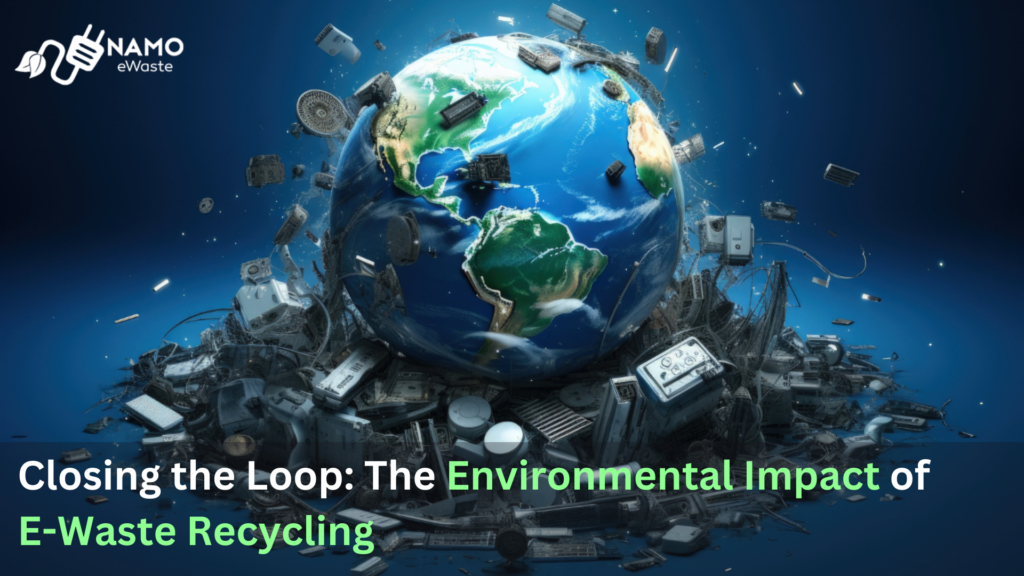In our digital age, the rapid evolution of technology has led to a surge in electronic consumption, resulting in a corresponding increase in electronic waste, or e-waste. From outdated smartphones to obsolete laptops, electronic gadgets have a finite lifespan, contributing to the mounting electronic garbage crisis. As a result, the hazards of electronic waste have become a pressing concern globally, necessitating effective e-waste disposal and recycling solutions.
The term “e-waste,” or electronic garbage, refers to a wide range of abandoned electronic devices, such as computers, televisions, cellphones, and home appliances. Because these electronic cast-offs contain dangerous substances including lead, mercury, cadmium, and flame retardants, they pose serious environmental dangers. Inadequate management and elimination of electronic waste can result in contaminated land and water, air pollution, and harmful health consequences for both people and animals.
Effect on Soil
The effects of electronic waste on the environment are extensive and diverse. When electronic trash is illegally disposed of, heavy metals and other chemicals seep into the soil, undermining its fertility and damaging crops. This process is known as soil contamination. When food cultivated in impacted areas becomes contaminated, both humans and animals may be at risk for health problems.
Effect on Air
Another negative effect of improper handling of e-waste is air pollution, especially in areas where shredding or burning of electronic components is part of unofficial recycling procedures. Communities located distant from recycling operations may be impacted by the long-lasting, harmful gases and dust particles emitted during these procedures, which can cause respiratory conditions.
Effect on Water
The most subtle effect of e-waste is probably water contamination, as dangerous materials leak into surface and groundwater sources, threatening aquatic ecosystems and posing a health risk to humans. Fish and other aquatic species can accumulate heavy metals like lead and mercury, which can be dangerous to wildlife and people who eat contaminated seafood.
Effect on Humans Exposure to e-waste chemicals has been shown to have detrimental impacts on human health, ranging from neurological diseases and respiratory problems to cancer and reproductive concerns. Pregnant women and children are among the vulnerable groups most at risk.
In India, the proliferation of electronic devices has amplified the challenge of managing electronic waste. With the country’s rapid economic growth and increasing technological adoption, the volume of electronic waste generated annually has soared, exacerbating environmental concerns. The lack of adequate infrastructure for e-waste disposal and recycling further compounds the issue, leaving many communities vulnerable to the adverse effects of electronic garbage.
In this regard, electronic recycling companies play a pivotal role in closing the loop on e-waste. These specialized firms utilize advanced technologies and processes to dismantle, recycle, and repurpose electronic waste, extracting valuable materials and minimizing waste sent to landfills. By partnering with electronic recycling companies, individuals and businesses can ensure that their electronic garbage is disposed of responsibly and ethically, contributing to a more sustainable future.
One such electronic recycling company making strides in the field is NAMO eWaste. Committed to environmental stewardship and sustainability, NAMO eWaste offers comprehensive e-waste recycling solutions tailored to the needs of businesses and individuals. With state-of-the-art recycling facilities and a dedicated team of experts, NAMO eWaste ensures that electronic waste is managed efficiently and in accordance with environmental regulations.
In conclusion, the environmental impact of e-waste recycling cannot be overstated. By addressing the hazards of electronic waste through responsible disposal and recycling practices, we can safeguard our planet and preserve its natural resources for future generations. With the support of electronic recycling companies like NAMO eWaste, we can turn the tide on the e-waste crisis and create a more sustainable world for all.


